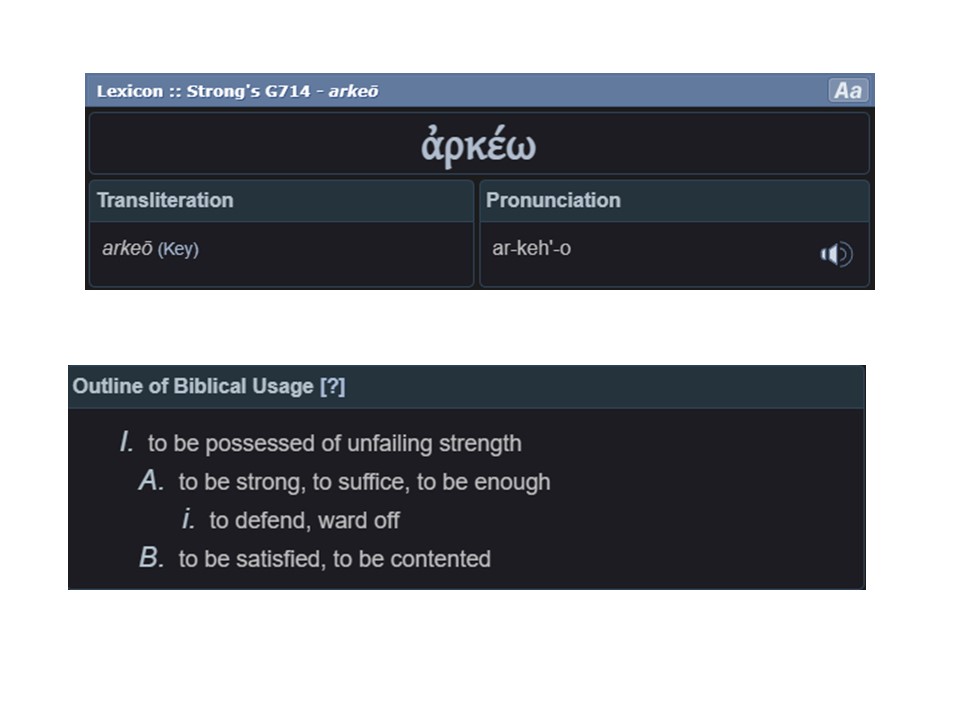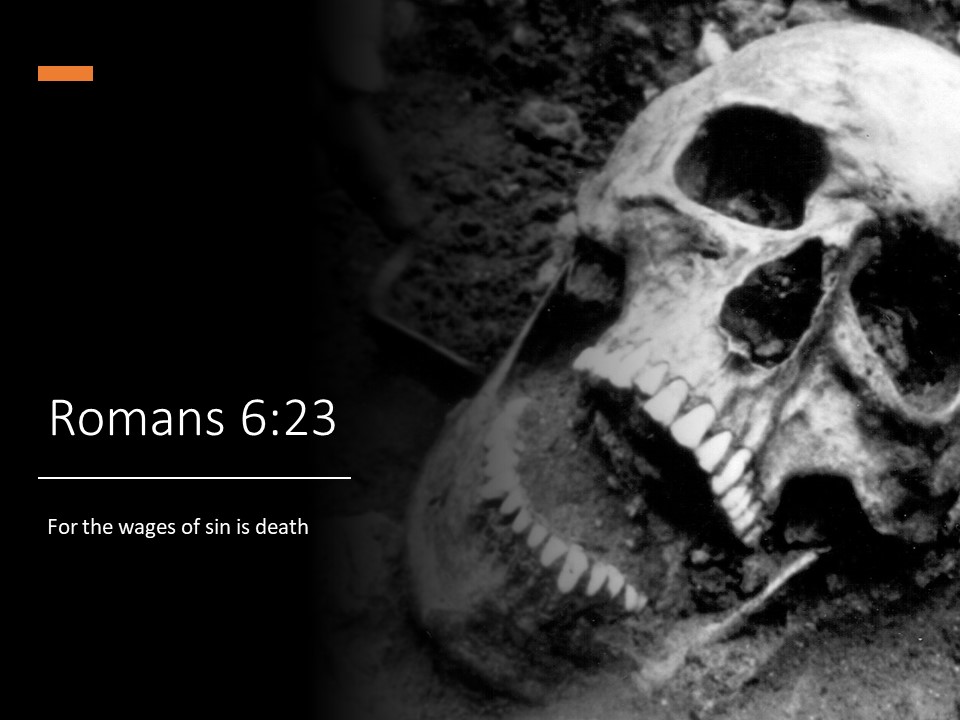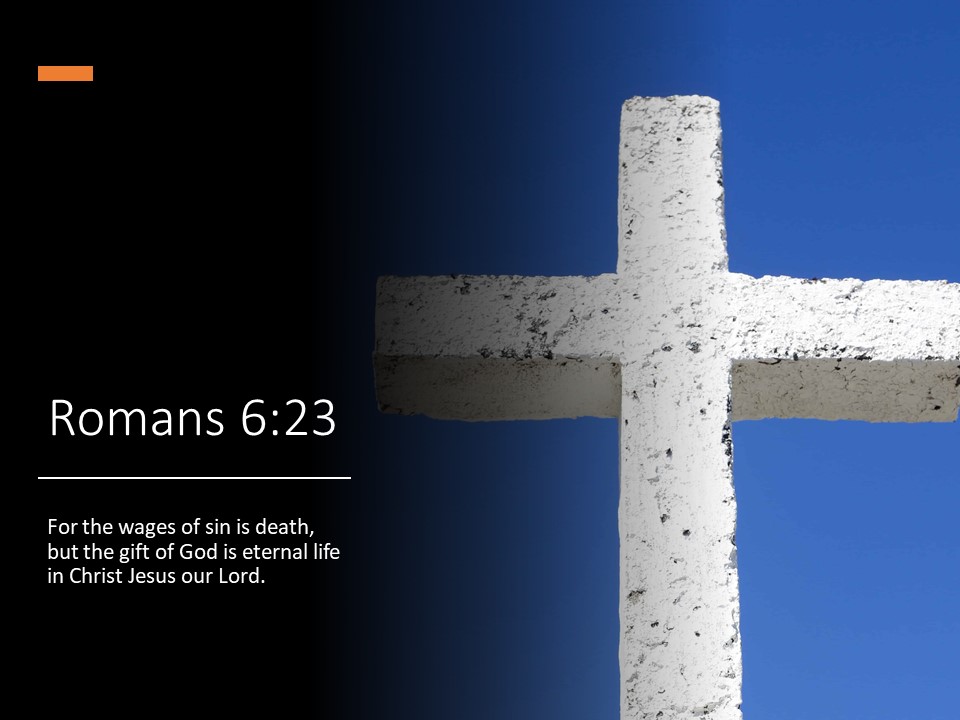I. Introduction – Joy and Contentment
What is contentment? What does it mean to be content? Three weeks ago, the weather here in Houston was just perfect. Sunny, no clouds, low humidity. My wife and I went outside to the pool, turned on some Louis Armstrong jazz, I pulled out a lawn chair from the garage and a beach umbrella. I was so content you could hear me from Florida. Grzzzzz Zzzzzz.
And last year, December of Covid 20, you might remember how cold it was and just before that freeze that knocked out power and killed our ruby red grapefruit tree. I had a use-it-or-lose-it vacation, every place in the Caribbean, Florida, and the Gulf Coast was cold, like 45°F. We thought about escaping to Hawaii, but while the weather was ok, the quarantine was like a mandatory 6 months inside or something crazy. We found one place in the world that we could spend 4 days in sunny weather and return. We went to Cabo San Lucas.
Here’s a picture from the balcony of the breakfast area of the Waldorf Hotel. Perfect beach weather, listening to the wave crash, light breeze, not a soul around, probably because the Waldorf was closed and wasn’t our hotel. There was nobody there to enjoy that nice balcony.

Also nobody to enjoy the individual room jacuzzies at the Waldorf except for us. Our room was ½ mile down the beach and didn’t have a view like this. What can I say, I turn 60 next month and occasionally enjoy a little harmless rambunctiousness, especially with a view of God’s creation like this. By the way, I highly recommend staying at the Waldorf in Cabo, but you should probably splurge for a room.
Was I content? I felt content. Well, maybe a little anxious in case somebody from security came by and asked what room we were in.

Today we’re studying Christian joy and contentment, and it probably will not surprise you that this is not the contentment Paul was talking about in Philippians 4. How do I know? Paul wasn’t at the Waldorf in Cabo. He was in a prison in Rome, yet his contentment was complete.
Paul’s word for contentment is ‘ἀρκέω,’(arkéō), which means, “to be free from care because of satisfaction with what is already one’s own.” According to Paul, contentment is not about whatever we might gain or reach – not with our job, our money, our relationships, nor our emotions. It’s not even found in some sort of new modern positive attitude in ‘accepting’ our circumstances, either. According to Paul, real, true Christian contentment has nothing to do with our circumstances at all. Instead, it is a stillness, pleasantness, satisfaction in the soul that recognizes the amazing greatness of what our soul already has, our salvation in Christ.

I think there’s wisdom in understanding how Paul found contentment and joy while in prison, and we struggle to find contentment despite our comfy sofas, big screen televisions, and 4000 streaming channels to watch.
Paul finishes his letter to the church of Philippi by expressing appreciation for the gifts they had provided and encouraging them to seek contentment, not by laziness or comfort, but to find peace within Christ and joy within every situation. How do we find this contentment? I’m glad you asked, we’ll begin in Philippians 4:10-13.
II. Contentment in Any Circumstance
Paul writes,
But I rejoiced in the Lord greatly, that now at last you have revived your concern for me; indeed, you were concerned before, but you lacked an opportunity to act. Not that I speak from need, for I have learned to be content in whatever circumstances I am. I know how to get along with little, and I also know how to live in prosperity; in any and every circumstance I have learned the secret of being filled and going hungry, both of having abundance and suffering need. I can do all things through Him who strengthens me.
Paul tells us that contentment is possible “in any and every circumstance” and “in all things.” Why is it that contentment feels impossible to achieve in all circumstances? It’s because it is not found in all circumstances. If you’re looking for contentment in your circumstance, you’re looking in the material world for spiritual things. They’re not there.
Contentment in Christ, though, is always possible in all circumstances. Christ’s love for us isn’t dependent on circumstances. Christ’s love just is. All circumstances, all conditions, all situations. Paul contrasts 3 opposites to show that his joy and contentment is not related to his circumstance –
- With little or with prosperity
- With being filled or going hungry
- With abundance or in need
Did Paul have needs? Of course he did. Paul is human, just like the believers in the church of Philippi. In fact, most of the book of Philippi is a letter of appreciation for their provisions in meeting his human needs. Paul is just saying that, whether those needs are met, or those needs are not met, his joy and contentment is complete.
In other words, while Paul does have physical and circumstantial needs, the deeper needs in his life are complete. His need for significance? Complete. His need for security? Complete. His need for meaning and purpose? Complete. His need for salvation and forgiveness? Complete. His need to belong and to matter to someone? Complete. His need for love and approval and acceptance? Complete.
Paul was single and yet was still fulfilled in approval, acceptance, and belonging. His need for eternal assurance from God? Complete. His need to know that being locked in a jail cell is with purpose? Complete. In Christ, all of our deepest longings and most important desires are already satisfied and provided for abundantly. And that is where his contentment is found.
When we fail to find any lasting contentment in life, it is because we have depend on our circumstances to meet our human needs. But our souls were not created for circumstances; our were created to bring glory to our Savior.
I think sometimes we are not content in Christ because we do not understand who we are in Christ. Whether a new believer or one who has been a believer for decades, we still minimize our own sin. We look at sin as a list of things we don’t do. I don’t cuss, I don’t murder, I don’t commit adultery, I’m mostly ok, so forgiving me must be easy for Christ. But it doesn’t work like that. All sin is abhorrent to God. Whether I’m stealing by robbing a bank or I’m stealing by jumping into a patio hot tub at the Waldorf I didn’t pay for, the penalty for sin is death. Romans 6:23,
For the wages of sin is death

Because I view my sin as insignificant, my contentment in Christ is insignificant. If I view my sin as it truly is, vile and wicked and entirely self-loving and abhorrent to God and worthy of death, then the second half of Romans 6:23 brings me contentment,
For the wages of sin is death, but the gift of God is eternal life in Christ Jesus our Lord.

When I recognize what a wretch I am without Christ, then my contentment within Christ is immense. Without Him, I’m worse than nothing. I am in opposition to my Creator, I am a child of the devil. Christ saved me from everything.
Circumstances do not tell us why we matter. Circumstances do not forgive us, love us, provide assurance, or guarantee meaning and purpose. And therefore, circumstances cannot lead to deep peace or long-term satisfaction. Circumstances come and go, rise and fall, shift and change. They are sand beneath our feet.
But Paul’s contentment, ‘ἀρκέω,’or arkéō, is rock underneath our feet because it is about what we already have and cannot lose. It is a foundation we stand on because of who Christ is to us, what Christ has done for us, and who Christ will for us in every circumstance. Biblical contentment rests in Christ, not in a circumstance.
Paul knew how to keep his focus on Christ. When you and I go through an emotionally challenging time, I’m certain we deal with emotions that cloud our judgement about who Christ is. Will Christ provide a miracle? Will Christ provide comfort? Do these difficulties tell me anything about how Christ feels about me? But Paul knew to focus on Christ. Instead of seeing Christ through his difficulties, Paul saw his difficulties through Christ. Christ has already provided miracles, Christ has already provided comfort, and these difficulties pale next to the sacrifice Christ has already made for me.
Where are you on this spectrum of feelings vs knowledge? Do your feelings affect what you believe about Christ? Or does your knowledge drive your feelings? Based on your circumstances of life right now, does contentment feel elusive or impossible? Or does it feel available and accessible? Do your emotions and your sense of contentment rise and fall according to your circumstance? Or are you free, or at least, desire to be free from feeling enslaved to the world around you whether or not things are going great or horrible? Just like the believers at Philippi, our contentment in Christ reveals what we value most, how free we are from the things of the world, and what God means to us in Christ.

Paul finds abundance in scarcity, contentment in chaos, because of Paul’s identity in Christ. But he doesn’t have to do it alone. He also gains contentment by seeing Christ in the believers around him.
III. Contentment Through Other Believers
Philippians 4:14-18,
Yet it was kind of you to share my trouble. And you Philippians yourselves know that in the beginning of the gospel, when I left Macedonia, no church entered into partnership with me in giving and receiving, except you only. Even in Thessalonica you sent me help for my needs once and again. Not that I seek the gift, but I seek the fruit that increases to your credit. I have received full payment, and more. I am well supplied, having received from Epaphroditus the gifts you sent, a fragrant offering, a sacrifice acceptable and pleasing to God.
Paul notes that the believers at Philippi always expressed concern for Paul’s needs and ministry; however, there was a season where they were unable to provide for some of his needs. Despite the lack of resources, Paul felt ministered to emotionally and spiritually.
The church also shared in his trouble. Paul explains that once he left Macedonia, the young church at Philippi was the only church that season that could support Paul. Being a small church, even small resources are challenging, but they shared what little they had. And they did this over and over again.
And the result is that Paul felt ‘well supplied.’ Paul had circumstantial needs, and God used the church to provide.
So here’s a conundrum: if contentment is found in Christ, why did Paul need provisions? Here’s something every believer comes to know –
- Contentment in all circumstances is found only in Christ;
- Provision for all circumstances is met through Christ’s church.

Some of you heard me teach a few weeks back on the joy through humility. I explained my proficiency in humility and showed you the trophy I had won in a humility contest, beating out all those other losers. That was all in fun; the serious note in that lesson was that humility is not thinking less of yourself, but thinking of yourself less. Learning to love your neighbors as yourself, and how to love your enemy by seeing in them the creation that God had made.
After I taught, though, I was pondering the lesson I had taught, and it occurred to me that God demonstrates all virtues we are to imitate. And Jesus humbled Himself in His obedience to His death on the cross. Does God continue to demonstrate humility? Is humility a virtue we can ever assign to our omnipotent, almighty creator?
Only Christ can fulfill our deepest needs. Our circumstantial needs, though, our need for provisions like food, water, clothing, God could easily provide. But in God’s humility, He created us such that our other needs might be provided for by someone other than Himself: the church.
Our church community cannot meet our deepest need for salvation, the forgiveness of the soul, freedom from shame, eternal security, life’s meaning and purpose. But our church community can remind us of these things, and apply these things to us, and embody these things before us. But despite the efforts of our church community, ultimately they will come up short. Contentment is only found in Christ.
But Christ does care about our other needs as well. Our physical, emotional, mental needs and desires that are circumstantial needs that affect all of us. And God has ordained His people – you and me, the local church, this bible study class – to be His ministers to other believers. God uses community to minister to us personally.

And uses community, this bible study and local church, to minister to others. It’s as though, in God’s infinite wisdom, He knows we cannot truly learn to love one another unless one or more of us is in need. Our interpersonal relations mirror the love God has for us.
I think Picasso’s paintings of the human body are… interesting. I also think it’s more realistic than we give him credit for. Collectively on our own, we are discombobulated, disjointed, dysfunctional. Christ has a far more lofty goal for the body of Christ. In 1 Corinthians 12:12-13,
For just as the body is one and yet has many parts, and all the parts of the body, though they are many, are one body, so also is Christ. For by one Spirit we were all baptized into one body, whether Jews or Greeks, whether slaves or free, and we were all made to drink of one Spirit.

Paul goes on to explain in his letter to the church at Corinth that the church is like a body, all connected to the head, which is Christ. And each member of the body of Christ – similar to each part of a human body – has a unique purpose. And the needs of the body not only serve others outside of the body but often serve and minister to the body itself.
If your ear itches, your hand scratches it. Your hand is ministering to your ear. Your ear has circumstantial needs. It’s an excellent illustration of the body of Christ. Each one of us will have an itch, will have a hurt, will have a need. Our church body can lend a hand, can scratch that itch for us. That’s because our church body recognizes we are all one body and we share in each other’s needs.
So in other words, contentment for the deeper needs of life is only found in Christ, but provision and contentment in the needs in life are located in His body, the church. Contentment without being connected to the body of Christ is not possible because we are not solely spiritual beings; we are human beings with physical needs as well. Complete contentment, spiritual and physical, is found in Christ and in His people.
How do these two things tie together? Paul explains in Philippians 4:19-20.
IV. Contentment in Christ
And my God will supply every need of yours according to his riches in glory in Christ Jesus. To our God and Father be glory forever and ever. Amen.
Here is the key to finding contentment in Christ, and that is trusting in the Lord. The opposite of contentment is anxiety and worry. Anxiety and worry disappear when we trust that God will supply our every need. Not our wants, our needs.
God promises to take care of all of our needs ‘according to his riches in Christ Jesus.’ In other words, Christ is not just God’s provision for all of our spiritual needs; Christ also demonstrates how God cares about all our needs.
God demonstrates the lengths He is willing to go for you and me. How much does God love you? How much does He love me? He loved me so much He died for me.
Romans 8:32, Paul writes,
He who did not spare his own Son but gave him up for us all, how will he not also with him graciously give us all things?

His argument is that if God provided our greatest need – salvation of our very souls – and He did this while we were His enemy, then we should also trust him for our minor needs now that we are adopted children of God. God know what we need, and God will provide when He chooses, and we trust in His love and mercy while we wait for the Lord.
God’s promises are grand – He cares for us every day because He also care for us forever. Our growth in faith is learning to trust in those promises and wait on the Lord. This trust – knowing that God will provide – leads directly to contentment. My anxieties fade – God’s got this. My worries fade – God’s got this.
Part of that trust is also understanding what I don’t need. God will provide everything I need. And if I don’t have something I think I need, I can be content knowing that God is in control. Maybe I don’t need it. Maybe I don’t need it now, maybe I need it later. Which is it? I don’t know. God does.
God’s provision today is sufficient for me today, and His timing in providing for me is perfect. If I learn to depend on this promise, then I am content in this promise. I am not waiting on a future provision; I know that every provision I need today, I already have. God’s love surrounds me, always.
Psalm 40:1-3,
I waited patiently for the Lord;
he turned to me and heard my cry.
He lifted me out of the slimy pit,
out of the mud and mire;
he set my feet on a rock
and gave me a firm place to stand.
He put a new song in my mouth,
a hymn of praise to our God.
Many will see and fear the Lord
and put their trust in him.
Our contentment today is not because we wait and eventually receive, but because God has already provided everything we need to do what He calls us to do.
Paul closes this portion of his letter with,
To our God and Father be glory forever and ever. Amen.
I don’t want to skip an important word here. God is “our” Father. We belong to Him and se are secure and content in His love because I’m not a lost stranger, I’m not a pesky neighbor, I’m an adopted child. I belong, no matter what crazy stuff is going on in the world, no matter if I’m bruised or broken, I can be content that He is my Abba, my Father.
In Matthew As Jesus says in the gospel of Matthew 7:9-11,
“Which of you, if your son asks for bread, will give him a stone? Or if he asks for a fish, will give him a snake? If you, then, though you are evil, know how to give good gifts to your children, how much more will your Father in heaven give good gifts to those who ask him!”

I can trust in my Heavenly Father, not just because He provides, but because He provides out of love for me. I mean something to God. My life, for whatever reason, has meaning to my God and Father. The creator of this amazing universe not only notices me, but loves me.
So my contentment in Him is recognizing that I am more than my stuff. A God who can create the galaxy Andromeda is probably not impressed if I drive a old beat up Chevy or a brand new Ferrari. My contentment is recognizing that God values me and adopts me, calls me His own, and prepares a place for me.
God is not just a Father. He’s not just the Father. He’s my Father and He’s your Father.
V. Conclusion
So where do we find contentment? True, biblical contentment is a deep satisfaction of the soul based on the abundance of what we already possess in Christ. As believers, when we doubt or resist God, we will start looking somewhere else for ‘true abundance.’

We will search for the greener grass. We push ourselves to work harder. We sacrifice in order to feel satisfied. And all of that leads to hopelessness and restlessness, knowing that our own feeble attempts to fill that God-shaped hole that exists in each of. That contentment is not found in this world. Those that are discontented, dissatisfied, and disappointed are looking at circumstances for joy and peace. Those that are content have brought contentment into their circumstances.
May we seek abundance in Him. May be trust that Christ is sufficient for all our need, and may be rely on God the Father and on each other to provide everything we need. True contentment is yours today and forever.
All glory to God through Christ alone. Amen.


Leave a comment